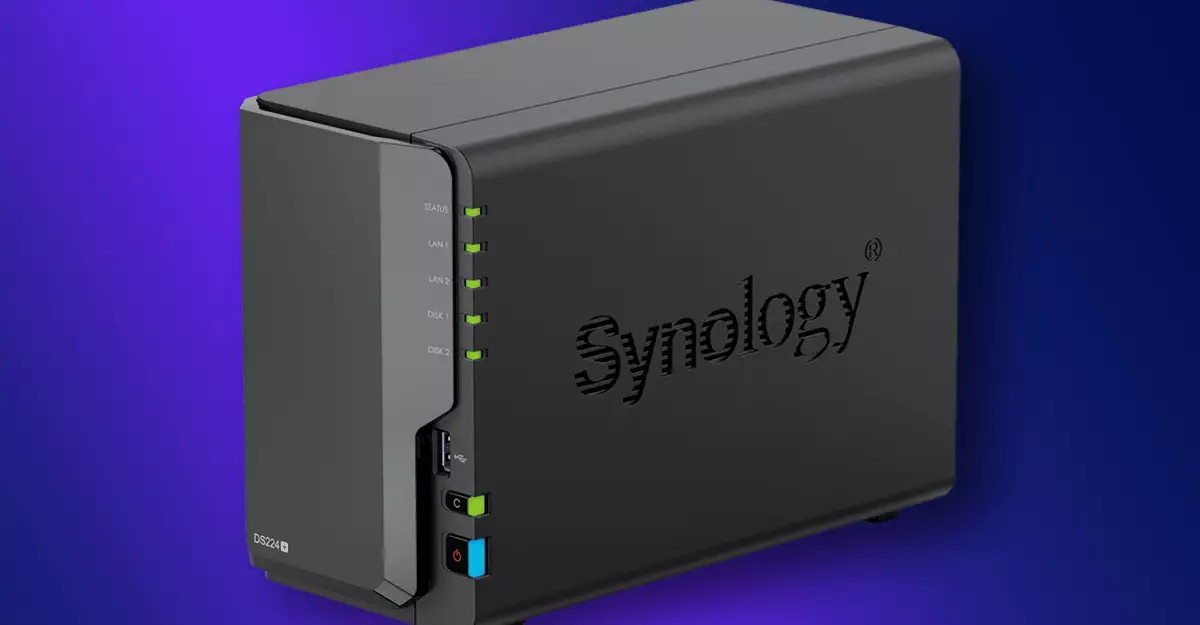In an era where data storage solutions are becoming increasingly essential, Synology has announced significant changes regarding the compatibility of third-party hard drives within its upcoming NAS (Network Attached Storage) systems. While the company emphasizes that existing models will remain unaffected, this alteration, set to take effect with the Plus Series models introduced in 2025, raises critical questions about accessibility, flexibility, and consumer choice in the tech landscape.
Synology, well-regarded for its robust NAS solutions, has established itself as a go-to for both personal users and enterprises when it comes to data management. However, the latest development, as reported by tech outlets, indicates that only Synology-branded drives—or those that meet the company’s stringent specifications—will provide the full scope of functionalities and support. This announcement signals a pivotal change in how users will interact with the Synology ecosystem, raising eyebrows among loyal customers who value versatility.
Impact on Users and Accessibility
One notable impact of these new restrictions is the limitation imposed on users’ choices for hard drives. For many, NAS systems serve a variety of purposes—from acting as backup solutions for home networks to functioning as local media servers. With Synology’s new policy, the ability to utilize cost-effective third-party options will likely diminish, pushing consumers towards higher-priced Synology-certified drives.
The reality is that for tech enthusiasts and average consumers alike, having a range of choices is vital to the ethos of technological advancement. Competition in the market drives innovation, and it often results in more budget-friendly alternatives. By narrowing the selection to approved drives, Synology may inadvertently stifle a segment of the market that thrives on cost-effectiveness. It is worth questioning whether such restrictions enhance user experience or simply create a pathway towards increased revenue for the company.
Support and Reliability: A Double-Edged Sword
On the one hand, Synology cites internal studies, suggesting that utilizing rigorously tested drives can lead to a decrease in drive failures and compatibility issues. This angle speaks to the desire for enhanced performance and reliability—qualities consumers undoubtedly appreciate. On the other hand, this rationale poses an interesting ethical dilemma in terms of consumer autonomy.
The idea that Synology is looking out for its users sounds appealing, but it begs the question: is this truly about reliability or simply about consolidating control within their ecosystem? While the notion of reducing compatibility issues is respectable, the methodology of enforcing product specifications can lead consumers to feel trapped within a closed environment, thereby dampening the overall user experience.
The Fine Line Between Control and Innovation
Synology has opted to enhance the reliability of their systems through restrictions, which hints at a growing trend among manufacturers to control the ecosystem surrounding their products. Such strategies are not limited to Synology; we see similar measures with printer companies blocking third-party ink or smartphone manufacturers that limit software capabilities when non-branded accessories are employed.
However, moving towards a landscape where companies dictate every aspect of the user experience raises concerns about user empowerment. As consumers, we often prefer to explore options that suit our unique needs—what works best for one individual might not be applicable to another. With Synology’s shift towards limiting certain functionalities to branded products, we must question the potential for innovation and the pursuit of efficiencies that come from a diverse marketplace.
Looking Ahead: A Call for Balance
As the market develops, we stand at a crossroads where consumer expectations collide with corporate strategies. While Synology’s intention may be rooted in good faith, advocating for reliability and user experience, it is imperative that they recognize the broader implications of their restrictive practices.
The future of technology depends not solely on who can provide the most reliable solution but also who can foster a culture of choice and adaptability. Therefore, Synology must carefully weigh the consequences of their actions—not just from a profits standpoint but in ensuring that they remain in alignment with the essence of what drives technological evolution: the freedom to innovate and customize.

